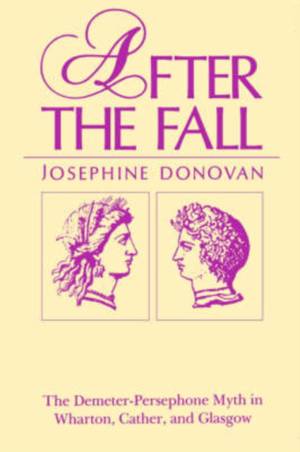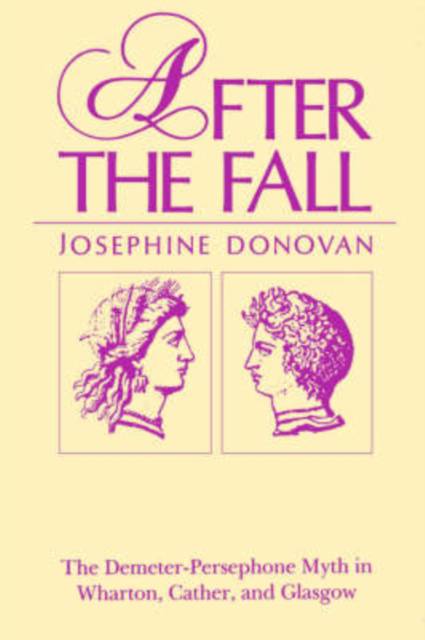
- Retrait gratuit dans votre magasin Club
- 7.000.000 titres dans notre catalogue
- Payer en toute sécurité
- Toujours un magasin près de chez vous
- Retrait gratuit dans votre magasin Club
- 7.000.0000 titres dans notre catalogue
- Payer en toute sécurité
- Toujours un magasin près de chez vous
After the Fall
The Demeter-Persephone Myth in Wharton, Cather, and Glasgow
Josephine DonovanDescription
A continuation of Josephine Donovan's exploration of American women's literary traditions, begun with New England Local Color Literature: A Women's Tradition, which treats the nineteenth-century realists, this work analyzes the writing of major women writers of the early twentieth century--Edith Wharton, Willa Cather, and Ellen Glasgow.
The author sees the Demeter-Persephone myth as central to these writers' thematics, but interprets the myth in terms of the historical transitions taking place in turn-of-the-century America. Donovan focuses on the changing relationship between mothers and daughters--in particular upon the "new women's" rebellion against the traditional women's culture of their nineteenth-century mothers (both literary and literal). An introductory chapter traces the male-supremacist ideologies that formed the intellectual climate in which these women wrote.
Reorienting Wharton, Cather, and Glasgow within women's literary traditions produces major reinterpretations of their works, including such masterpieces as Ethan Frome, Summer, My Antonia, Barren Ground, and others.
Spécifications
Parties prenantes
- Auteur(s) :
- Editeur:
Contenu
- Nombre de pages :
- 208
- Langue:
- Anglais
Caractéristiques
- EAN:
- 9780271027258
- Date de parution :
- 15-09-89
- Format:
- Livre broché
- Format numérique:
- Trade paperback (VS)
- Dimensions :
- 152 mm x 229 mm
- Poids :
- 317 g

Les avis
Nous publions uniquement les avis qui respectent les conditions requises. Consultez nos conditions pour les avis.






